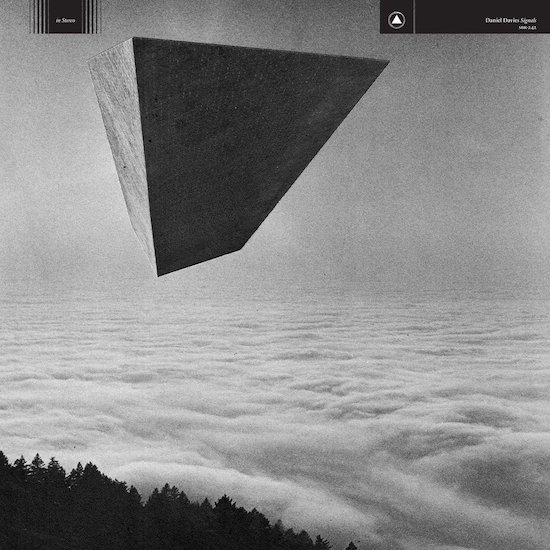In the process of assisting John Carpenter create 2018’s Halloween soundtrack, Daniel Davies was given an education in the art of subverting expectation, preserving tension and using repetition as a means to unnerve and unhinge. Where a typical composer might utilise the clarity of piano as a means to romanticise memory or crystallise their own sentimentalities, Carpenter channelled that poetic lucidity into the form of a proximity alarm that triggers when the boundaries between the supernatural and the natural dissolve. In his first solo album Signals, Davies wields his instruments much to the same effect, capitalising on the ability of their sound as a means to both provoke and placate, to intimidate and inspire.
That subversion of expectation is demonstrated straight off the bat in the golden-hued synths that suddenly erupt and overpower the palpitations and thistledown chords of opener ‘Last Days’. The river splits into another unexpected stream as the record moves from a sense of playfulness to the gothic ambience of ‘One Hundred Days’. Two minutes in, the introduction of the piano evokes images of dead poets, wordless eulogies and cult effigies waiting patiently to be burned. Warbles and clockwork loops eventually start to hint at cracks in reality, in the incorporeality of the moment. The tension increases, culminating in the shrieking drones that keep the track from drifting away like a bouncer squeezing pressure points to keep a sloshed punter conscious.
There is a cinematic suspense running through the record but Davies takes great pride in diverting that trajectory when least expected, in adding modernist flourishes to classical pieces and jagged edges to what could be perfect symmetry. Using drones, synths and guitars he facilitates states of sober self-reflection only to violently wake the listener up and throw them into disarray. A prime example of this is the next track ‘Origins’ where the power chords bleeding red white and blue and screaming outworn Americana feel like they’ve been placed mischievously just to antagonise and sow discord. To irritate and intrude on the delicate soundscape he so capriciously builds on ‘One Hundred Years’. These are the moments that will divide listeners. There are those that will not appreciate the contrast in décor from room to room, preferring a sense of cohesion and coherency in overall theme rather than a showcase of individual character. Then there are others that will embrace the records varied colour-palette, the contrast between the electrified loops of Carpenters contribution ‘Destructive Field’ and the idyllical pastoral sunset of ‘Beyond Megalith Illumination’. This unpredictability, as jarring as it can sometimes be, is a fundamental part of the character and quirkiness that defines the record. At times it feels like self-sabotage and at others it feels like there is a method in the madness. Trying to understand that method is equal parts infuriating and exhilarating, but undoubtably part of the charm of it all.
If you can’t be bothered to crack the puzzle then ‘Phantom Waltz’ is that express elevator to nirvana, the accessible shortcut to music so charged with purpose and meaning it doesn’t need to be translated. Switching to a harpsichord Davies brings out the inherent Carpenter qualities hidden in New Orders ‘Elegia’ (which was written in honour of Ian Curtis) and brings those notes to full ripening. In a way it’s like the other songs have a deformity of some kind, an abrasion or some hint of divergence in their DNA. Compared to them, ‘Phantom Waltz’ Is apotheosized, soaring and gloating in its sheer cinematic indulgence. In the sombre closing of ‘Visible’, the groaning hungry drone evokes the imagery of Jesse Drexler’s album artwork, of gargantuan anomalies and gloating leviathans hewn from alien stone, moving ominously and slowly casting a great shadow over the land.


